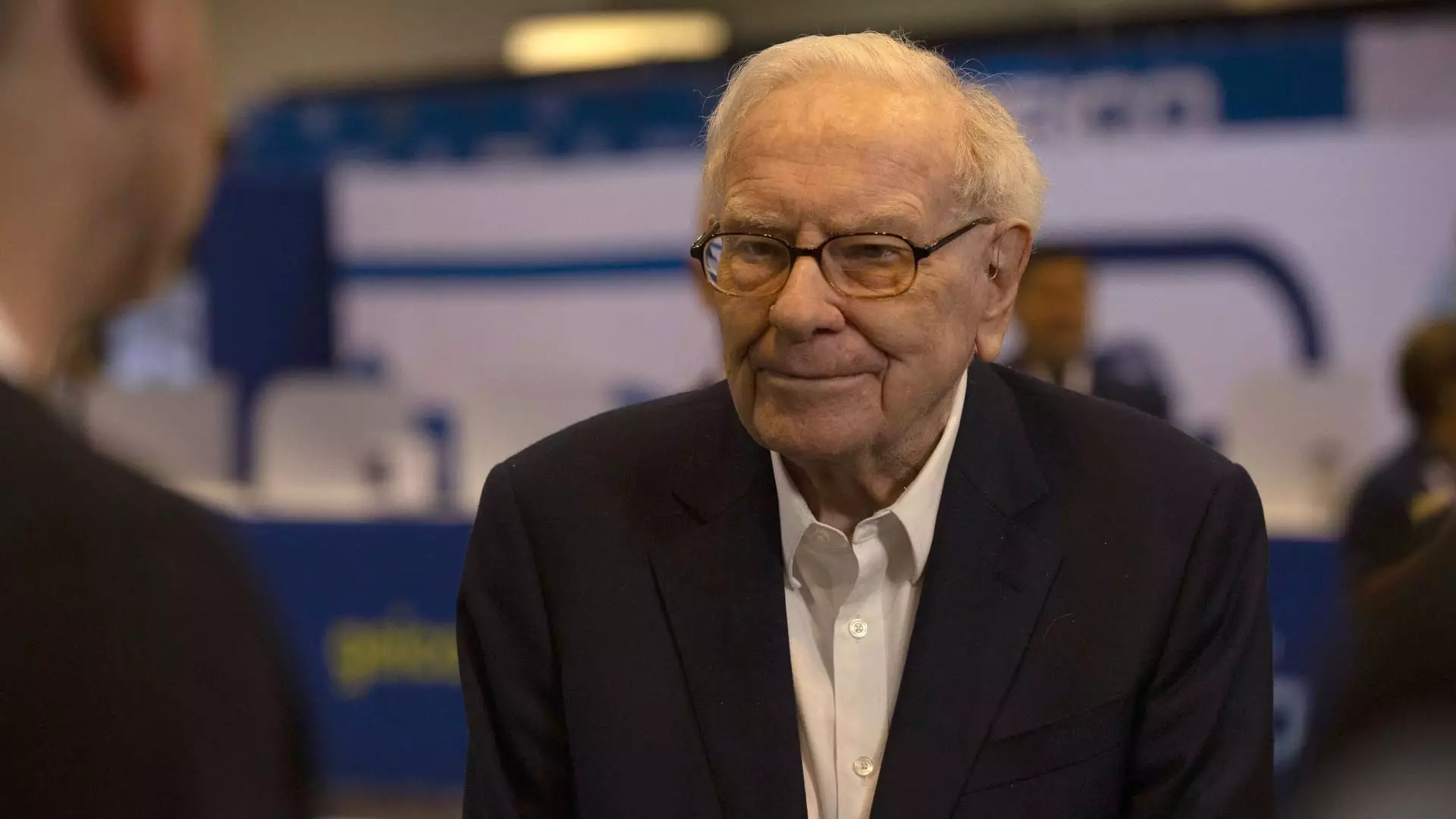Berkshire Hathaway, a behemoth in the investment landscape overseen by the legendary Warren Buffett, has reported striking earnings for the fourth quarter of 2024. This period showcased a significant transformation in the company’s performance metrics, particularly in operating profit and cash reserves. While there were notable advancements, the underlying complexities warrant a more nuanced understanding of the implications on the company’s trajectory.
In the final three months of 2024, Berkshire Hathaway reported an astonishing 71% increase in operating profits, culminating at $14.527 billion. This surge was predominantly spurred by an extraordinary 302% leap in insurance underwriting, buoying revenues by approximately $3.409 billion. The company’s ability to capitalize on this sector reflects its strategic focus on risk assessment and pricing in insurance markets, particularly through its subsidiary GEICO, which significantly contributed to the profit spike.
Moreover, the investment income from insurance also marked a robust increase of nearly 50%, rising to $4.088 billion. Such figures not only underline the strength of Berkshire’s foundational businesses but also illustrate how adaptive strategies in both underwriting and investment have enabled the conglomerate to navigate complicated market dynamics. For investors, this growth may signal a strong operational strategy, even amidst a backdrop where about 53% of the company’s 189 operating units reported declines.
Berkshire Hathaway concluded 2024 with an impressive cash reserve of $334.2 billion, up from $325.2 billion just a quarter earlier. This seemingly fortress-like financial cushion has drawn mixed reactions from analysts and investors alike. On one hand, this robust cash position provides a safety net that allows for strategic acquisitions and investments, akin to a valuable war chest. However, it also raises questions about the company’s ability to deploy this capital effectively.
Buffett acknowledged the scrutiny surrounding the cash hoard, emphasizing that despite the appearance of an extraordinary cash balance, the majority remains invested in equities. The markets have seen fluctuations, and while Berkshire’s ownership in marketable securities decreased to $272 billion, the value of non-quoted controlled equities saw a rise. This divergence points to a calculated approach towards managing liquid assets while capitalizing on less visible investment opportunities.
The fourth quarter witnessed a notable decrease in investment gains, plummeting from a phenomenal $29.093 billion the previous year to $5.167 billion. Such volatility may have startled some investors; however, it underscores the inherent risk associated with equity investments and market timing strategies that Berkshire employs. The conglomerate sold a significant portion of its stake in Apple throughout 2024, demonstrating a strategic pivot as it seeks to adapt to changing market conditions.
Buffett’s comment on the misleading nature of quarterly investment gains further emphasizes the long-term perspective that Berkshire adopts. He reassured shareholders that while recent gains appeared modest, the overall strategic positioning remains robust and oriented towards sustainable growth. Investors should note that Berkshire’s focus likely aligns more on fundamental business operations rather than short-term market fluctuations.
While the fourth-quarter results present an impressive narrative of profitability and strategic maneuvering, the looming threat from catastrophic events—such as the reported $1.3 billion in pre-tax losses from recent Southern California wildfires—demonstrates that external factors can disrupt even the most fortified insurance portfolios. As Berkshire navigates these challenges, the adaptability of its business model will be crucial.
As the world shifts into an era of potential economic tumult characterized by inflationary pressures and regulatory changes, the diversified portfolio and liquidity position of Berkshire Hathaway are likely to be critical assets. Stakeholders might find reassurance in Buffett’s commitment to maintaining a focus on equities, which has historically favored long-term wealth creation.
While Berkshire Hathaway’s financial results from Q4 2024 reflect a combination of impressive growth and strategic caution, monitoring future developments in both their operating sectors and investment strategies will be essential for investors aiming to gauge the conglomerate’s forthcoming performance trajectory.

Leave a Reply